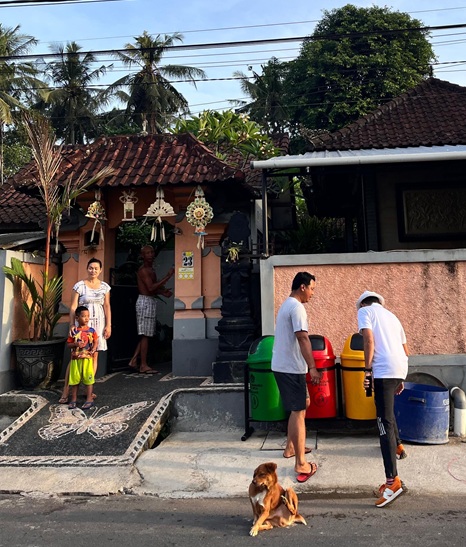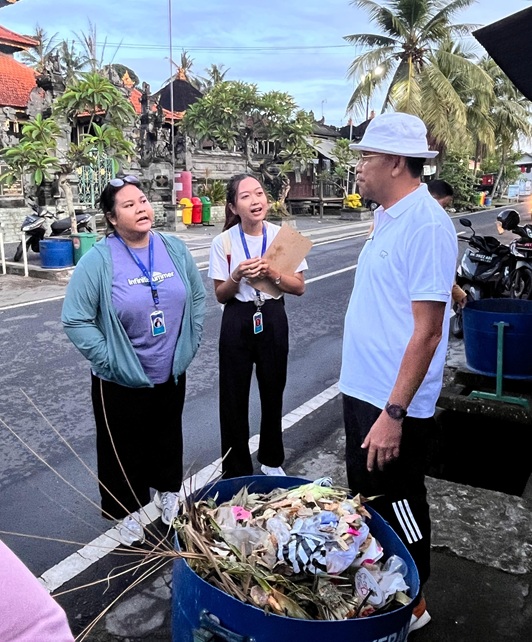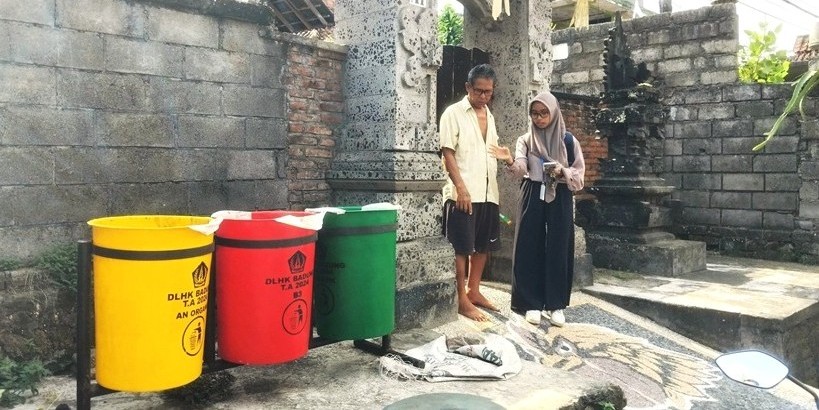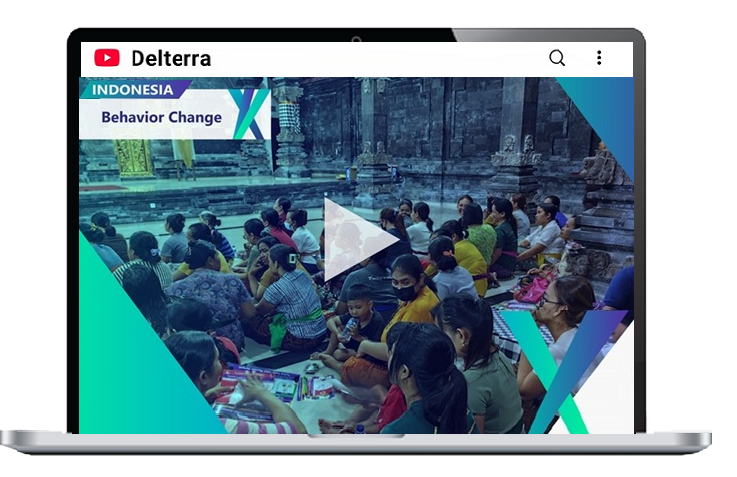How Kekeran Village Revolutionized Waste Sorting
Sorting waste at the source is one of the most critical steps to ensure that organic materials don’t end up in landfills or polluting the environment. However, encouraging communities to adopt this habit has proven notoriously difficult. In just two weeks, Kekeran Village in Badung Regency, Bali, achived what many communities struggle with for years: shifting household behavior toward proper waste separation. Through a bold pilot project developed by Delterra enforcing a “No Sorting, No Collection” rule, household participation in waste sorting surged from just 6% to 78%. At the same time, the contamination of waste arriving at the processing facility dropped from 100% (everything mixed together) to 26%.
This rapid transformation was no coincidence. As part of Badung Regency’s broader push to integrate organic waste from 19 routes into a centralized facility, Kekeran stands out as proof that rapid, scalable behavior change in waste management is possible. The success was driven by strict enforcement mechanisms, strong government commitment, and the trust built between regency and village leaders.
Kekeran’s journey offers valuable lessons for other regions facing poor waste separation and overburdened landfills.
Why Enforcement Was the Missing Piece
The success of Kekeran Village was built on a foundation of existing provincial and regency regulations that mandate waste separation at households and businesses. While Bali has long required households to separate their waste, enforcement was largely absent. Without clear consequences, households became discouraged when they saw their sorted waste mixed during collection with that of neighbors who were not sorting. This eroded trust and fueled apathy.
Delterra’s pilot closed this gap by pairing clear rules with reliable execution:
- DLHK Badung, the regency’s environmental agency, demonstrated strong ownership by managing collection schedules, fleet, drivers, and centralized organic processing facilities. By aligning these elements with the enforcement rule, DLHK created the operational backbone that residents and business owners could trust.
- Equally important was the commitment of Kekeran’s local leaders, who had long sought a sustainable system and finally had DLHK’s backing and the clarity they needed to enforce separation effectively, turning aspiration into real change.
Village Leadership Drove Rapid Change
 In just 14 days, household participation soared to 78%. The rule was simple: if waste wasn’t sorted, it wasn’t collected. But local leadership turned this policy into practice. Village leaders spread the message across all sub-villages (Banjar), aligned local collection teams with DLHK’s standards , and eliminated mixed waste collection altogether.
In just 14 days, household participation soared to 78%. The rule was simple: if waste wasn’t sorted, it wasn’t collected. But local leadership turned this policy into practice. Village leaders spread the message across all sub-villages (Banjar), aligned local collection teams with DLHK’s standards , and eliminated mixed waste collection altogether.
They didn’t stop at coordination. Leaders actively used meetings and WhatsApp groups to socialize the rule, set an example through their own compliance, and worked closely with Delterra, DLHK Badung, and collection teams to solve problems quickly. This made the scheme feel less like a top-down mandate and more like a shared community commitment.
The result: accountability shifted to the household level, and sorting became part of collective responsibility. This pilot proved that clear rules plus empowered local leadership can spark rapid behavior change.
Government Backing That Built Trust
Equally important was the role of the DLHK Badung. With Delterra providing recommendations, they worked intensively to improve the waste collection system and processing facility so they could meet the needs of waste separation in Kekeran. Within the same 14 days, the contamination rate of waste arriving at the processing facility declined drastically from 100% to 26%, whereas previously all types of waste had been mixed.
This progress was achieved by shifting the mechanism from curbside to door-to-door collection, guiding the collection team to comply with existing guidelines, providing logistical support, and ensuring continuous on-site monitoring. The process valued the involvement of the village, fostering productive discussions and compromises that supported successful implementation.
 In addition, by being present and actively involved throughout the pilot, the DLHK Badung provided both technical assurance and moral support. This consistent engagement fostered a sense of legitimacy and trust.
In addition, by being present and actively involved throughout the pilot, the DLHK Badung provided both technical assurance and moral support. This consistent engagement fostered a sense of legitimacy and trust.
The village’s apparatus and communities felt they were part of a broader mission, not just a ‘test case’. This participatory governance model turned what could have been resistance into resilience. The regency’s approach demonstrates that meaningful change requires partnership, not just funding or equipment. When government authorities actively collaborate with communities by listening, adapting, and reinforcing shared goals, the outcome is more sustainable and inclusive.
Key Lessons for Scaling Waste Reform Government
Kekeran’s success sets a benchmark for waste management reform in Bali and beyond. It shows that:
- Enforcement works when it is clear and backed by reliable services.
- Trust matters when households see their efforts respected, they keep participating.
- Partnership is essential; government, community, and technical partners must each own their role.
As Bali and other regions face mounting landfill pressure, Kekeran offers a proven model. The question now is: which community will take the next step?

We invite you to watch this video and discover more about our work in Indonesia.
🔔Join us on YouTube and subscribe now!
From behind-the-scenes looks at our programs to inspiring stories of change and engaging webinars, you’ll find it all here.
Subscribe & share
Be sure to subscribe to our newsletter. And share with a friend to get real world insights and practical actions for a circular economy!
This blog was contributed by:
Associate, Indonesia
Delterra
Senior Coordinator, Indonesia
Delterra



